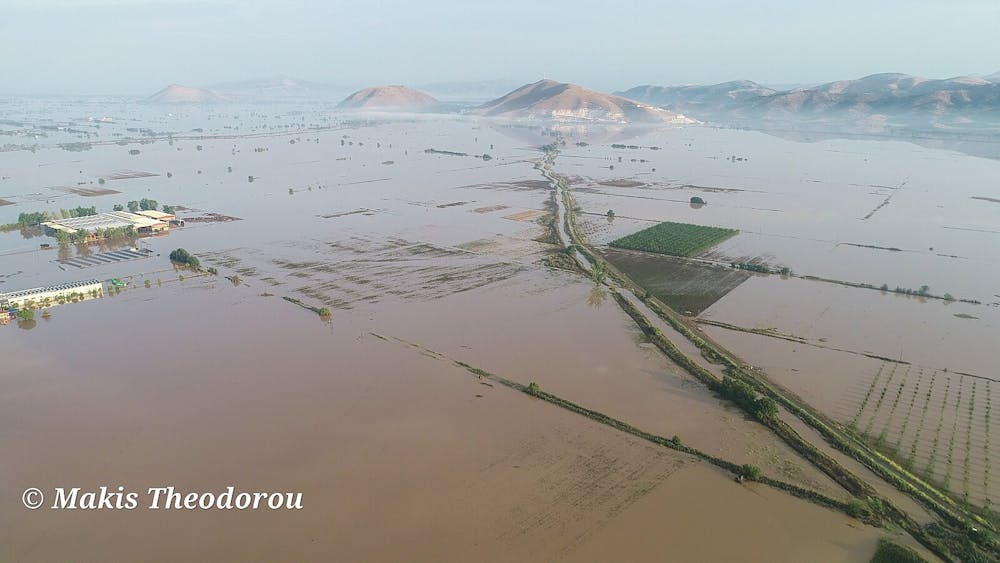By Rajika Chauhan
Staff Writer
A summer characterized by increasingly extreme weather events around the globe has now evolved further into disasters of previously unknown scope. Flooding associated with Tropical Cyclone Daniel has ravaged the coastal city of Derna in Libya, with ABC reporting an estimated 11,300 dead and another 10,000 missing. As survivors mourn and attempt to pick up the pieces left behind by the storm, blame for the severity of the tragedy is being directed to a deadly combination of climate change, political conflict and administrative incompetence, as reported on by The New York Times (NYT).
Built atop Greek ruins and once a renowned hub for culture and artistry, the city of Derna has been decimated in the aftermath of the bursting of two pivotal dams. Storm Daniel began its sweep across the Mediterranean Sea in the first week of September, with the AP citing earlier casualties in Greece, Turkey and Bulgaria. Despite these warnings of the potential strength of the storm, the NYT reports that the Libyan government failed to administer appropriate protocols for evacuation and disaster preparation. Floodwaters would ultimately lay Derna and surrounding settlements to scourge, with entire villages uprooted and sent into the seas. The AP records some 30,000 Libyans displaced in the aftermath of the floods, with those who survived the devastation continuing to wait on news for missing loved ones.
The city’s suffering is compounded by the difficulty in access to humanitarian aid, with the wreckage from the flood impeding key points of entry. Bodies have been abandoned to the streets or remain floating in standing water, amidst collapsing buildings and mangled scraps that pose a further threat to those still in the area, as per the NYT.
Manoelle Carton, a medical coordinator for Doctors Without Borders in Libya, spoke to a lack of organization and improper direction of aid that are exacerbating the flood’s destructive aftermath.
“Everybody wants to help. But it is becoming chaotic,” Carton said. “There is an enormous need for coordination.”
The particular extent of the devastation seen in Libya is the product of years of social unrest and political division, with civil turmoil depriving the nation of key infrastructural investments. As reported by the NYT, the nation was ruled for over 42 years by autocrat Col. Muammar al-Gaddafi, until a revolt in 2011 during the Arab Spring protests. In the decade since, two opposing political factions have asserted control over different halves of the country. According to the NYT, while the internationally recognized government helmed by Prime Minister Abdul Hamid Dbeibeh oversees the Western region, Derna is under the jurisdiction of the Libyan National Army and its commander Khalifa Haftar. The civil war between the two groups has fractured the nation, leaving its infrastructure and defenses weakened in times of stress such as those presented by the flood.
Anas El Gomati, director of Libyan policy research center the Sadeq Institute, had harsh words for the blood, he feels, lies on the hands of both sides of the government.
“We say Mother Nature, but this is the act of man — it’s the incompetence of Libya’s political elites,” stated El Gomati to the NYT. “There’s no words you can find to describe the biblical level of suffering those people have to endure.”
In the ruins of Derna lies the all too common story of political greed abandoning a people to the suffering that accumulates within a nation only partly made and managed. As climate change increases the frequency and severity of natural disasters, the weakened structures of nations such as Libya may find themselves similarly tested, with vulnerabilities exposed to horrific consequences.







